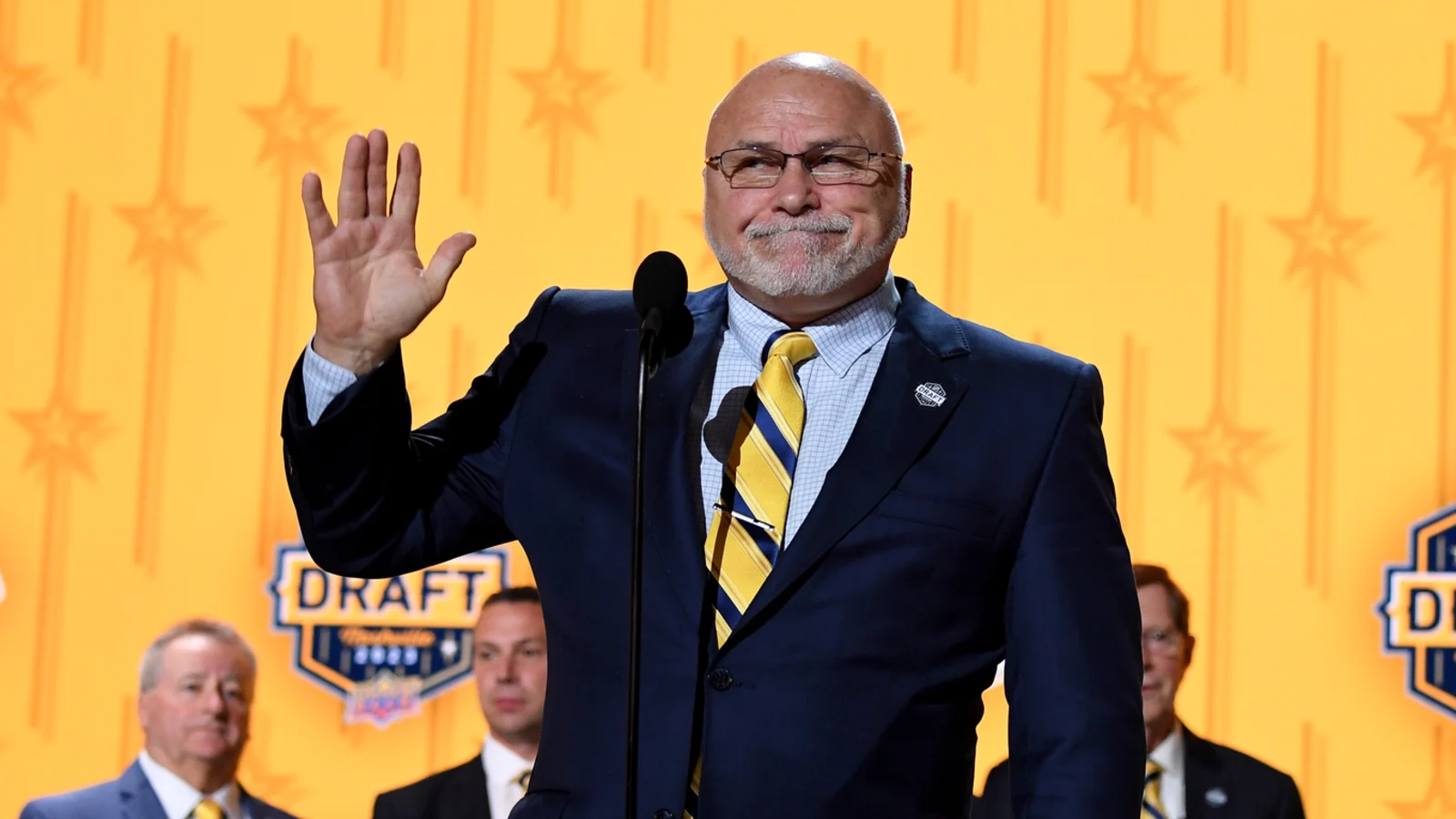GM Predators’ Remarks About a Rebuild Cast Doubt on Future Direction
The Nashville Predators have long been a model of stability and competitive excellence in the NHL, but recent remarks by General Manager **David Poile** about the team’s potential need for a rebuild have cast a shadow over the organization’s future. Poile’s comments, made during a midseason press conference, were eye-opening for fans and analysts alike, as the Predators have typically been known for their ability to remain in the playoff hunt, even when other teams in the Central Division are rebuilding.
But now, with a roster showing signs of aging, potential trade rumors swirling around key veterans, and a new head coach in **Andrew Brunette**, it seems that the Predators’ long-term future is being re-evaluated. So, what does Poile’s acknowledgment of a possible rebuild mean for the team and its fans? Let’s take a closer look at the situation.
### **A Shift in Philosophy: Poile’s Rebuild Remarks**
Poile’s comments were a stark departure from the aggressive win-now mentality that has defined the Predators’ approach for most of the last decade. Since the team’s inception in 1998, Poile has maintained a steady hand in managing the roster, often finding ways to keep the Predators competitive despite limitations in cap space or market size. The Predators’ 2017 Stanley Cup Finals appearance remains one of the most significant moments in franchise history, and they have made the playoffs in 16 of the past 17 seasons, an achievement that speaks to their consistent ability to compete.
However, as the Predators’ roster has aged, and with some of the team’s cornerstone players like **Roman Josi**, **Ryan Johansen**, and **Matt Duchene** getting up there in years, Poile’s comments seemed to signal a shift in the organization’s priorities. The team has failed to get past the second round of the playoffs in recent years, and while they’ve remained competitive, their overall ceiling has been a topic of growing concern.
“Everything’s on the table for us. We’re not going to sit here and try to be a mediocre team,” Poile said during the press conference. “We need to make the right decisions for the future, and if that means looking at a rebuild or retool, then we’ll consider all options.” His remarks were candid and reflective of the team’s struggles in recent years, especially in light of the changing dynamics in the NHL.
### **The Case for a Rebuild**
Poile’s admission that a rebuild might be on the table isn’t entirely surprising, given the team’s current trajectory. While the Predators have some standout players, such as **Juuse Saros** in goal and **Filip Forsberg** on the wing, their overall depth and ability to compete with top-tier teams in the West have come into question.
Some factors supporting the idea of a rebuild for the Predators include:
1. **Age and Declining Performance of Key Players**
As mentioned, veterans like Josi, Johansen, and Duchene, while still highly skilled, are nearing or in their 30s. The Predators have relied on these players for leadership and production, but their aging core brings questions about the long-term viability of that approach. Teams in the NHL today tend to succeed when they can balance veteran leadership with youthful energy, and the Predators’ current roster seems to be missing that balance.
2. **The Importance of Draft Capital**
Poile’s comments seem to acknowledge the growing importance of acquiring assets for the future. The NHL is increasingly a league dominated by young talent, and teams that can consistently draft well and develop players are positioned for long-term success. Nashville’s lack of high-profile prospects in the pipeline raises concerns about their ability to reload through the draft. A rebuild would give the team an opportunity to replenish its prospect pool, stockpile draft picks, and give more playing time to younger players to accelerate their development.
3. **The Predators’ Competitive Status in the Central Division**
The Central Division has become one of the toughest in the NHL, with teams like the **Colorado Avalanche**, **Minnesota Wild**, and **Dallas Stars** rising to elite status. While Nashville has remained competitive in recent years, they’ve struggled to consistently keep pace with the top teams in the division. A rebuild could provide the opportunity to retool the roster and position the team for a more significant challenge in the years to come.
4. **A Reboot Under New Leadership**
With Andrew Brunette now at the helm as head coach, the Predators are in a position where they can experiment with new systems and strategies. A rebuild under a fresh coaching staff would allow for a more cohesive vision for the team, especially if they decide to develop younger players around Brunette’s system. This change in leadership could be the perfect opportunity to pivot toward the next phase of the franchise’s development.
### **The Challenges of a Rebuild**
While a rebuild could be the right move for the Predators in the long term, there are plenty of hurdles the team would need to navigate in the short term.
1. **Fan Expectations**
Nashville has a passionate fan base that has grown accustomed to playoff hockey. The city has become one of the most vibrant hockey markets in the league, and a rebuild could risk alienating a portion of that fan base. While some fans understand the need for long-term planning, the challenge for the Predators’ front office will be convincing the city that a rebuild is necessary, even if it means a dip in team performance in the short term.
2. **The Financial Impact**
Rebuilding typically requires moving on from expensive contracts, and the Predators have a number of high-priced veterans on their roster. Trading players like Johansen or Duchene could be difficult, both in terms of finding the right suitors and managing the cap hit. The Predators also have a well-established business operation, with a loyal fan base and significant revenue from home games, and a rebuild could risk the team’s ability to maintain that financial success if it leads to a significant drop in performance.
3. **The Uncertainty of a Rebuild**
There’s always uncertainty when entering a rebuilding phase. Not all young players develop as expected, and there’s no guarantee that a rebuild will lead to quick success. The Predators would have to take a long-term view and endure some tough seasons while they rework their roster and establish a new identity. There’s always a risk that a rebuild might not work as planned, leaving the team in a prolonged period of mediocrity.
### **What’s Next for the Predators?**
In the wake of Poile’s comments, all eyes will be on how the Predators approach the trade deadline and the offseason. The team has some valuable assets—particularly players like **Mattias Ekholm**, **Roman Josi**, and even **Nino Niederreiter**—who could attract trade interest from teams looking to make a playoff push.
The next few months will be critical in determining whether the Predators fully embrace a rebuild or attempt to stay competitive with a retooled roster. Either way, Poile’s remarks suggest that Nashville is open to making bold decisions in order to ensure long-term success.
Ultimately, a rebuild could be the best path for the Predators to regain their status as one of the NHL’s elite teams. The path forward will require difficult decisions, patience, and some tough conversations with fans, but it could lay the groundwork for a new era of Nashville hockey—one that can compete for championships in the years to come. How the team navigates these decisions will be key in shaping the franchise’s future.



